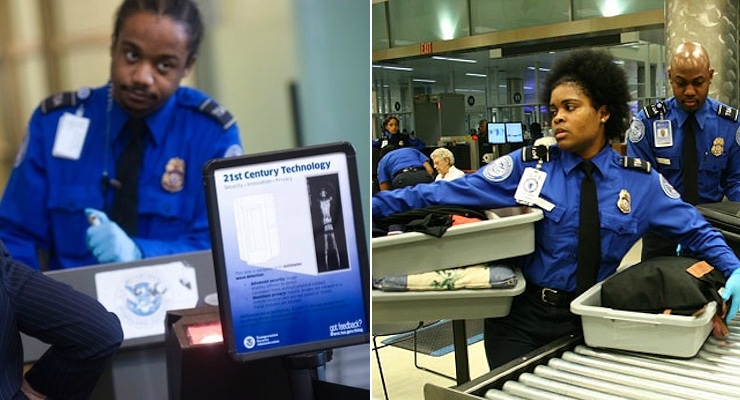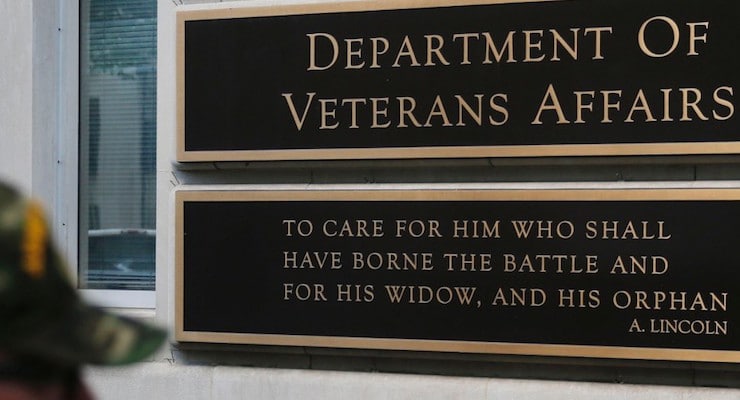The Public Squalor of Airport Security

File: TSA officers check bags at Hartsfield-Jackson International Airport in Atlanta, Georgia. (Photos: Amy Zerba/Getty/Newscom/PPD)
I was about to share my own sob story, when I read that hundreds of passengers missed their flights at Chicago O’Hare International Airport because of hourslong security lines. Many had to sleep on cots overnight, awaiting a morning escape. American Airlines says that in March, about 6,800 travelers missed its flights at the busiest airports for the same reason.
The federal government’s failure to provide a crumb of decent service to ordinary travelers can only astonish. Firing a top official at the Transportation Security Administration may have been necessary, but it also feeds into the tale that bureaucratic incompetence is behind every governmental breakdown.
No, money often is — and the dysfunction of a political class that prefers obsessing about who may use the ladies’ room over the hard work of maintaining basic government services. The TSA, for one, has been funded at subsistence levels.
Here are some numbers: In 2011, the TSA employed over 48,000 screeners. Budget cuts later, it is now down to about 42,500. In response to public outrage over scandalously long security lines, Congress just approved spending another $34 million to hire nearly 800 new screeners.
Do the math. Adding 800 new workers would still leave the TSA with about 5,000 fewer screeners than it had five years ago — and at a time when the number of travelers using U.S. airports is expected to break a record. All this as the mysterious EgyptAir crash raises demands for ever more thorough security checks.
Do you realize what a paltry sum $34 million is in the context of federal spending? The Department of Defense spends almost $58 million every hour. We should also ask how much economic activity is being lost as travelers choose to avoid American airports.
One excuse for slashing the number of TSA workers was the mistaken belief that more Americans would sign up for TSA PreCheck, the expedited screening program. PreCheck vets air travelers in advance, qualifying them for quick lines and less scrutiny at airport security. Apparently, only about 2.7 million people have joined PreCheck thus far.
I am one of them. I spent a morning at a special office where I was interviewed and paid 85 bucks to become a PreCheck member.
And that’s why you’re going to hear my story, anyway.
LaGuardia has been ranked the second-worst airport in the nation (after Newark Liberty). On its most functional days, LaGuardia has a way of taking its pound of flesh. To avoid maximum hassle, I booked an early Tuesday morning flight out.
The TSA PreCheck line was closed. Thus, I joined the un-pre-screened masses in an hourlong line. “Why no PreCheck line?” I asked the harried TSA woman at the desk in front. Not enough personnel was the answer.
Once past the narrow security desk mouth, I encountered another mob jostling to reach the two screening lanes. The checkpoint had five screening lanes. Three were closed.
Six decades ago, Canadian economist John Kenneth Galbraith wrote of the American experience as one of “private affluence and public squalor.”
Think of that. Envision the superrich enjoying seamless luxury travel in their private jets. Now observe the regular folk bearing the gross discomforts of a shabby, underfunded public service. Even a business class ticket doesn’t give one wings.
The security line fiasco is a made-in-Washington outrage, a product of budget cutters who know only hatchets. In those surreal hours trying to get out of O’Hare, I doubt anyone gave a darn who was using the women’s restroom.
Firing a top official at the Transportation










